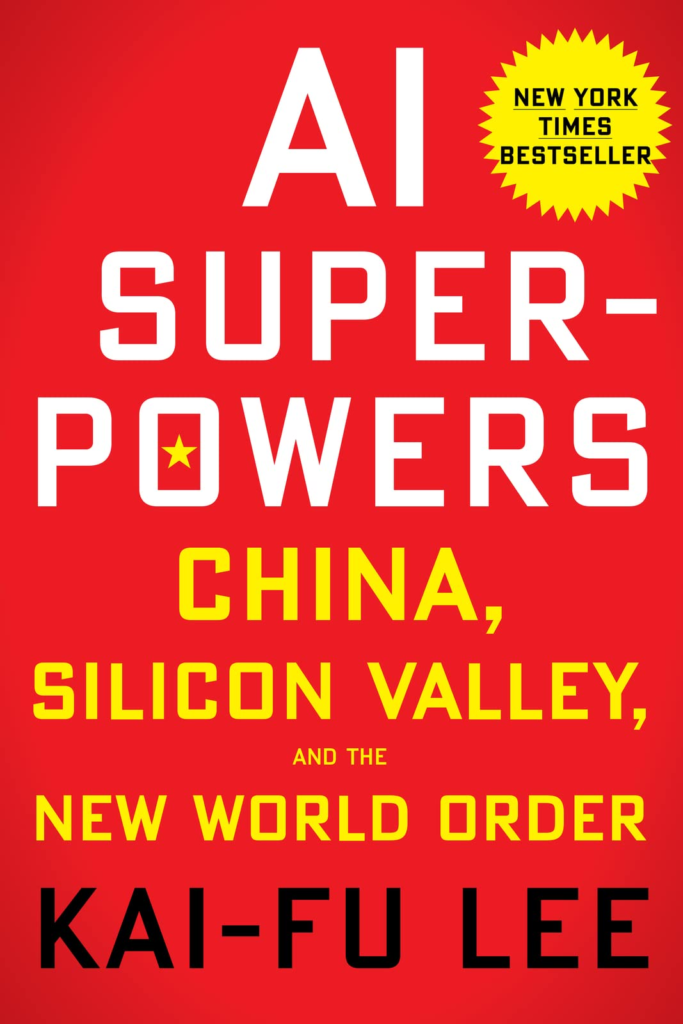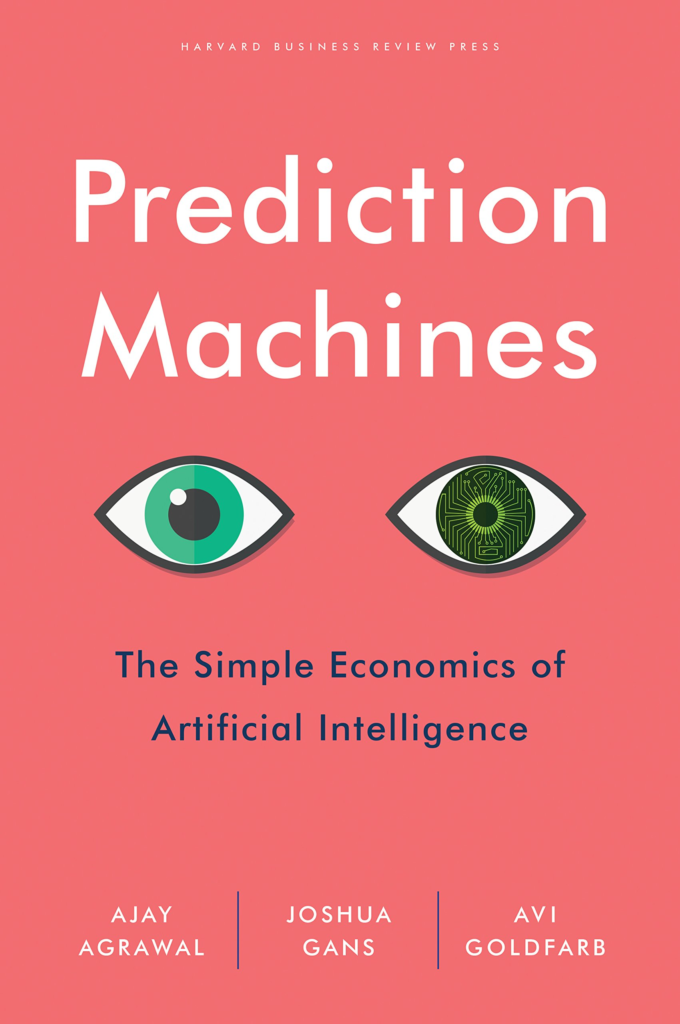Artificial Intelligence (AI) is no longer just a tech trend; it’s part of our daily lives, from our phones to our workplaces. If you’re interested in learning more about how AI works and how it’s impacting the world. Whether you’re new to the field or looking to deepen your understanding, these AI books offer valuable insights for everyone.
Here are the top 10 AI books of 2024 that you should definitely consider adding to your reading list.
1. “You Look Like a Thing and I Love You” by Janelle Shane

This lighthearted and funny book is perfect for anyone curious about AI but unsure about the technical side. Janelle Shane uses humor and simple examples to show how AI “thinks” and sometimes fails.
Through stories and experiments, Shane reveals the limits of AI’s decision-making. These often lead to surprising and amusing outcomes. For example, AI trying to create pickup lines or new ice cream flavors produces bizarre results.
Shane’s book makes complex topics easy to understand. It’s great for beginners who want a fun intro to AI. It’s also a reminder that while AI is smart, it’s far from matching human creativity.
2. “AI Superpowers: China, Silicon Valley, and the New World Order” by Kai-Fu Lee

Kai-Fu Lee is one of the world’s leading AI experts, and in AI Superpowers, he dives into the competition between China and the US for dominance in AI industry. Lee discusses how China has caught up with Silicon Valley in terms of AI innovation. And it largely thanks to the country’s massive amount of data and willingness to integrate AI into everyday life.
Lee’s book is more than just a tech battle between nations though. It’s about how AI is reshaping the global economy and job market. He provides a clear explanation of the “AI divide” and what it means for the future of business and society.
For anyone interested in the global implications of AI, this is one of the essential AI books to read in 2024. (and how it affects both superpowers and smaller economies)
3. “Artificial Intelligence: What Everyone Needs to Know” by Jerry Kaplan

This book is a no-nonsense, straightforward guide that explains AI in simple terms. Kaplan’s goal is to make AI understandable for the average person. And he succeeds by breaking down complicated concepts into manageable sections.
Kaplan covers the basics of how AI works or being used today, where it’s heading in the future. The book focuses on important topics like machine learning, neural networks, and AI in various industries.
It’s one of the best AI books for beginners who want a well-rounded understanding of artificial intelligence. You can get the most out of it without getting bogged down in too much technical detail.
4. “Weapons of Math Destruction” by Cathy O’Neil

In contrast to the previous books, this one takes a critical look at how AI and algorithms can perpetuate biases and inequality. She argues that while AI has the potential to transform industries, it can also lead to harmful consequences if not used responsibly.
For example, O’Neil discusses how algorithms in areas like education, hiring, and criminal justice can reinforce discrimination. As a result, this book is vital for those interested in the ethical side of AI, particularly its societal impact. You can see how AI algorithms can reinforce societal biases and lead to unfair outcomes. The author shows how these “weapons of math destruction” can harm people in crucial areas. You can name some like education, hiring, and criminal justice.
O’Neil’s book is essential for anyone interested in the ethical concerns surrounding AI and data. She explores how AI can perpetuate discrimination and inequality if not used carefully. If you’re concerned about the darker side of AI, this is one of the most thought-provoking AI books out there.
5. “Automating Inequality” by Virginia Eubanks

Similarly, Virginia Eubanks’ Automating Inequality explores how AI and automated systems disproportionately affect disadvantaged communities. She discusses how technologies meant to streamline processes, such as welfare and housing decisions, often end up harming the most vulnerable.
Therefore, this book is a must-read for anyone who is concerned about social justice and how AI technologies are shaping inequality. Eubanks’ thoughtful analysis will make you think twice about how we use AI in everyday systems.
The book highlights the impact of AI on social justice and explores how technology is often biased against those who are least able to fight back. This book is a must-read for anyone who cares about the intersection of AI and social equality.
6. “Genius Makers: The Mavericks Who Brought AI to Google, Facebook, and the World” by Cade Metz

This is one of the best AI books for readers who are interested in the people behind the AI revolution. Genius Makers tells the stories of the individuals who have shaped the development of AI, from early pioneers to today’s tech giants.
Metz provides a behind-the-scenes look at how AI moved from research labs to tech companies like Google and Facebook, and how these breakthroughs are transforming industries. It’s an engaging read for anyone curious about the history of AI and its major players.
7. “The Big Nine: How the Tech Titans and Their Thinking Machines Could Warp Humanity” by Amy Webb

Amy Webb’s The Big Nine explores the power held by nine tech companies – Amazon, Google, Facebook, Tencent, Baidu, Alibaba, Microsoft, IBM, and Apple, and how they’re shaping the future of AI. Webb argues that these companies’ dominance in AI could lead to major societal shifts, for better or worse.
Webb discusses the future risks and opportunities AI presents, as well as the ethical challenges we face with AI being controlled by a few major corporations. It’s one of the most insightful AI books for readers concerned about the future of technology.
8. “The Ethical Algorithm” by Michael Kearns and Aaron Roth

This book offers a deeper dive into the importance of designing fair and ethical AI systems. The Ethical Algorithm provides practical solutions for making AI algorithms more transparent, fair, and aligned with human values.
Kearns and Roth focus on how to reduce bias in AI models, ensuring that AI is used responsibly in fields like healthcare, finance, and law. If you’re interested in the ethical challenges of AI, this is one of the best AI books to explore.
9. “Prediction Machines: The Simple Economics of Artificial Intelligence” by Ajay Agrawal, Joshua Gans, and Avi Goldfarb

If you’re a business leader or entrepreneur trying to understand how AI can impact your company, Prediction Machines is the perfect read. The authors argue that AI is essentially a tool for better predictions, and they explain how businesses can leverage this to improve efficiency and decision-making.
This book is practical and business-focused, making it one of the most valuable AI books for anyone looking to understand AI’s role in the economy.
10. “Rebooting AI: Building Artificial Intelligence We Can Trust” by Gary Marcus and Ernest Davis

In Rebooting AI, Marcus and Davis critique the current state of AI, pointing out the limitations of today’s AI systems. They argue that while AI has made impressive progress, it’s still far from being truly intelligent.
The authors call for a shift in how AI is developed, emphasizing the need for more reliable, trustworthy AI systems that can better understand and interact with the world. If you’re skeptical about AI hype, this is one of the AI books that offers a more grounded perspective.
Why These AI Books Matter
As AI continues to evolve and influence every part of our lives, it’s crucial to stay informed about its capabilities, risks, and potential. These AI books offer a comprehensive view of the current AI landscape, from beginner-friendly overviews to deep dives into ethical and societal implications.
By reading these AI books, you’ll not only gain a better understanding of artificial intelligence but also learn how to navigate the future it’s shaping. Whether you’re looking to enhance your knowledge for personal curiosity or professional growth, these must-reads will help you stay ahead in the AI-driven world.
